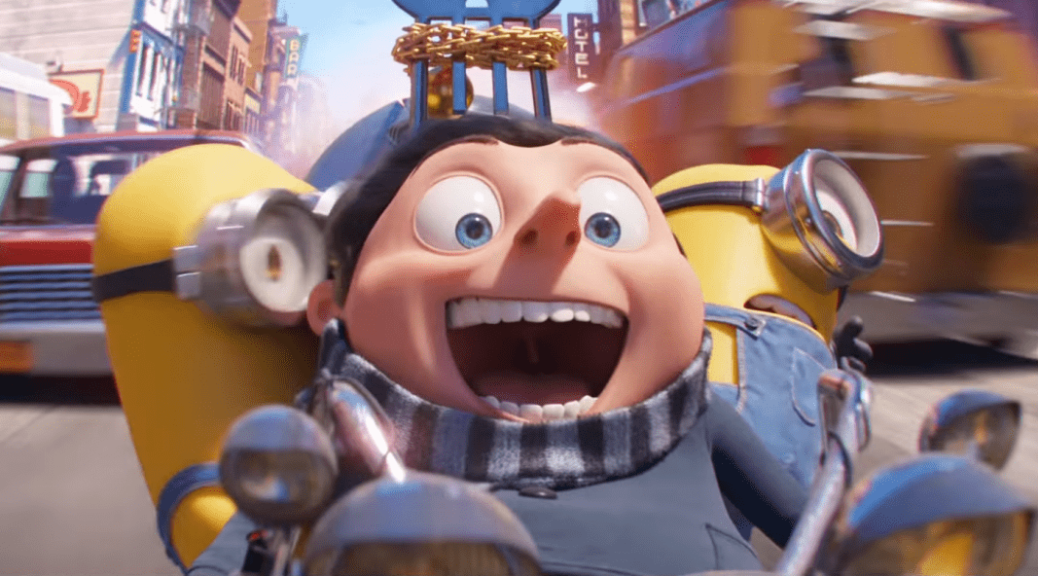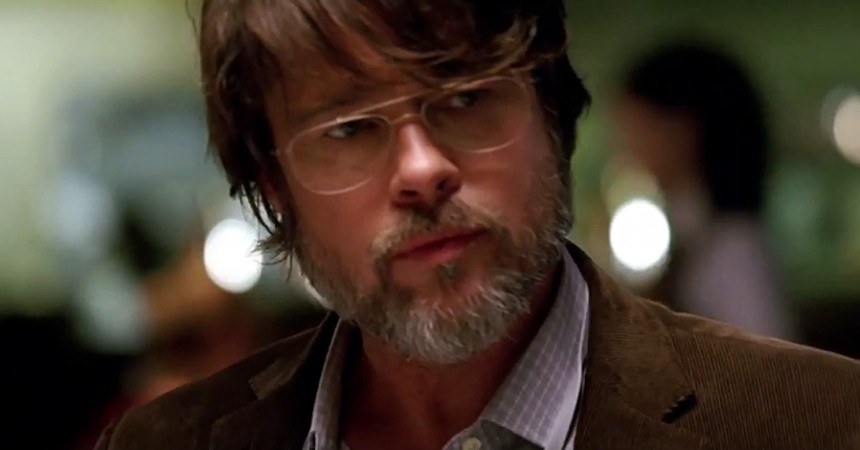Despicable Me 4
by Hope Madden
Despicable Me is a nice franchise—harmless and colorful, filled with engaging personalities. And perhaps what has made it as endearing as it has been for all these years and episodes is that Gru (Steve Carell) is actually, almost effortlessly, a good dad.
He’s had practice. For 14 years he’s been caring for the non-aging sisters Edith, Margo and Agnes, the orphans he took in so long ago to better pull off his greatest (to date) heist! Only to find out that he preferred fatherhood.
It helps—both in practicing paternal instincts and in entertaining movie theaters brimming with highly sugared tots—that he also cares for an army of oblong yellow goofballs.
So, 14 years, many capers, one wife and new son later, Despicable Me 4 finds Gru and his family hiding from his first arch-nemesis, high school bully Maxime (Will Ferrell), who swears vengeance from a class reunion slight with a plan to steal Gru’s infant son.
That is villainy.
Plus, there’s a counterattack operation involving superpowered minions. And there’s a wealthy neighbor family (Stephen Colbert and Chloe Fineman ably voice the upper-crusty parents) whose precocious teen Poppy (Joey King) hatches her own villainous schemes.
With all the crisscrossing, Easter egg bedecked, vibrant plot threads, it’s the one between Gru and Poppy that most satisfies as it reminds us again what a great girl dad Gru makes.
Kristin Wiig is underutilized (again) as Gru’s wife, Lucy and Sofia Vergara deserves more than what her character, Valentina, offers. Some of the secondary plot sequences feel like filler, but some bits of outright filler (a Dance Dance Revolution bit and everything with a vending machine) are highlights.
Ken Daurio’s been part of the DM writing team since the start, but Episode 4 marks the first collaboration with Mike White, whose previous work includes real highs (School of Rock, Beatriz at Dinner) and real lows (The Emoji Movie). Together the writers find a nice balance of nuttiness for characters—legacy and new—to continue to make this franchise a fun one.












